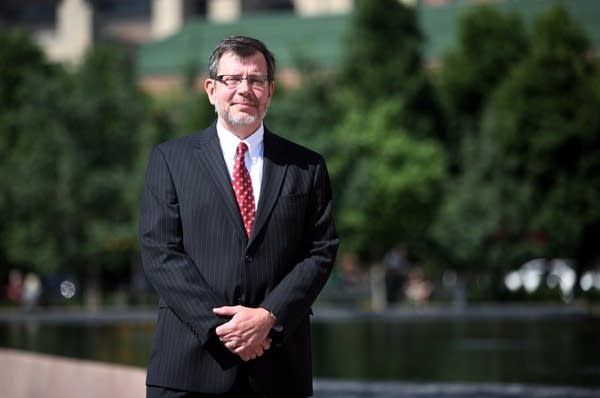University regents to consider lowest tuition increase in years
Go Deeper.
Create an account or log in to save stories.
Like this?
Thanks for liking this story! We have added it to a list of your favorite stories.

Students at the University of Minnesota could face the smallest tuition increase in more than a decade.
Later today, the university Board of Regents will review a budget proposal from President Eric Kaler. The proposal calls for a 3.5 percent tuition increase for Minnesota undergraduates. It also boosts financial aid, raises salaries a little for professors and staff, and funds new programs and faculty.
And all that with a minimum of increased spending.
Regents will review the budget and listen to public comment at a meeting this afternoon. They're expected to vote on the budget at their June 8 meeting.
Turn Up Your Support
MPR News helps you turn down the noise and build shared understanding. Turn up your support for this public resource and keep trusted journalism accessible to all.
A tuition increase wouldn't normally be anything to cheer about. But the past decade or so has been rough for students and their families. Starting in 2001, they saw double-digit tuition increases in four out of the next five years, some as high as 16 percent. Several subsequent increases were more than 7 percent.
State funding has shrunk. The university has cut back on programs and faculty. Students have rallied, and professors have complained.
The improved financial picture comes in part from conservative financial planning, university officials say. Last year, they planned for a worst-case scenario for state funding. When that didn't happen, they held onto the money for improvements this year.
The budget reflects the priorities Kaler laid out earlier this year. Among them: Rebuild faculty. Invest in scholarship. And importantly, curb tuition increases.

"We need to work as hard as we can to make education affordable and accessible to qualified students from the state of Minnesota," Kaler said. "And this budget is the first step in that direction."
The increase is just slightly above last year's annual rate of inflation. Add in fees and room and board, and the average student will pay $21,300 a year — an increase of $700.
Faculty and staff, who have suffered through three years of furloughs, wage stagnation and higher health-care costs, also get a little something. The university has upped by 2.5 percent the pool of money it uses for raises. It's giving a $500 pay increase across the board. It will also disburse the rest in merit pay increases.
Investment has lagged in academics for the past few years, and Kaler wants to spend $34 million to hire new faculty, fund programs, and upgrade libraries and classrooms.
Chemistry professor and faculty leader Chris Cramer said professors appreciate the raise, however modest.
"Certainly an increase of any sort is bound to improve morale. A lot of people feel like it has been freeze, freeze, freeze," Cramer said.
The budget is also the first to propose higher tuition for business majors — another $250 per semester. That would increase to $1,000 over the next few years.
To help offset the overall tuition increase for some students, Kaler proposes beefing up the university's Promise Scholarship by 14 percent. Students from lower- and middle-income families could get up to $500 more a year. He also wants almost $3 million more in merit-based aid.
Students say they're glad the tuition hike isn't higher. But freshman journalism major Megan Bailey says it still stings a little.
"So, I mean it definitely affects me a little bit more. I had to pick up another job this summer, too, to help kind of pay for tuition," Bailey said. "It's kind of a bummer that it's going up."
Overall, the budget will increase spending by 1.5 percent over what the university expects to spend this year.
University officials said they are unsure whether the improved budget is the beginning of better times. They say the university is working hard to be efficient. Kaler says much of the future is in the hands of Minnesota politicians.
"To me the tuition increases are tightly tied to support from the state of Minnesota," he said. "Going forward, I want the conversation to be about the state taking a portion of costs, and students taking a portion of costs."




